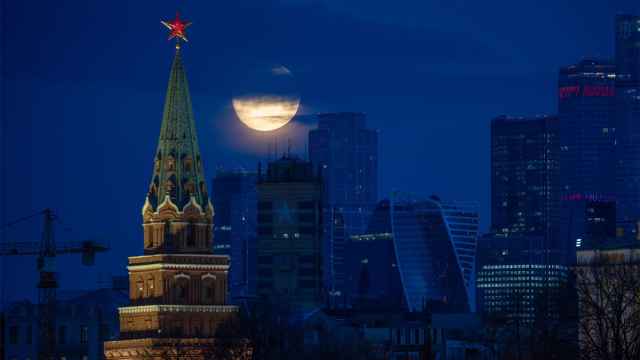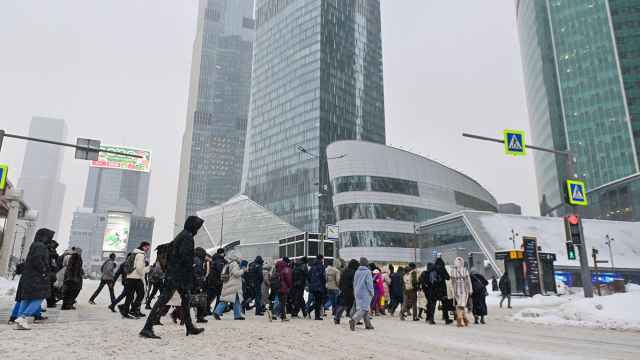Russia’s National Wealth Fund, the country’s key financial cushion built over the years from oil and gas profits, could be exhausted by 2026 if current economic trends persist, according to economists from the Russian Presidential Academy of National Economy and Public Administration (RANEPA) and the Gaidar Institute.
The warning, contained in a report on the federal budget for 2025, underscores the mounting fiscal pressure facing the Kremlin as oil prices fall and the ruble strengthens — two forces that have combined to erode the revenues that traditionally underpin Russia’s public spending.
As of June 1, the fund held 2.8 trillion rubles (about $36.4 billion) in liquid assets, its lowest level since 2019. That figure represents a dramatic decline from the prewar peak of $113.5 billion in early 2022. Since then, the fund has shrunk by more than half in ruble terms, and by two-thirds when measured in dollars.
The depletion has been accelerated by growing budget deficits and an ambitious array of infrastructure investments and state bailouts.
In May, the Finance Ministry withdrew 35.9 billion rubles ($466.7 million) to help cover the federal deficit, and another 532 billion rubles ($6.9 billion) was spent on large-scale state-backed projects.
State banks received 300 billion rubles ($3.9 billion) to fund a planned high-speed rail line between Moscow and St. Petersburg; the State Transport Leasing Company was given 6.5 billion rubles ($84.5 million) for aircraft purchases; and 1 billion rubles ($13 million) went to VEB, a state development bank, to acquire metro trains for St. Petersburg. An additional 50 billion rubles ($650 million) was allocated to undisclosed, classified projects.
As a result, the NWF holds only 153.7 billion yuan (roughly $21 billion) in foreign currency assets, the lowest amount since its creation in 2008. It also has 139.5 metric tons of gold, down sharply from over 400 tons before Russia’s full-scale invasion of Ukraine in 2022.
While the fund still provides a buffer against falling oil and gas revenues, analysts warn that it may not last long under current conditions.
If oil prices continue to hover around $52 per barrel — well below the $69.70 benchmark assumed in the budget — and the ruble remains relatively strong, the fund could be depleted in just over a year, said Ilya Sokolov, head of the Budget Policy Research Laboratory at RANEPA.
The Kremlin had originally planned to resume contributions to the NWF this year after three years of heavy wartime spending.
But sliding energy prices have upended those plans. The Finance Ministry now expects oil and gas revenues to total just 8.3 trillion rubles ($107.9 billion) in 2025, down from a projected 10.9 trillion ($141.7 billion).
The expected budget deficit has also ballooned to 3.8 trillion rubles ($49.4 billion), prompting plans to withdraw an additional 447 billion rubles ($5.8 billion) from the fund.
Officials are reportedly weighing budget cuts and a revision to the fiscal rule — the formula that governs when and how the NWF is used.
Under the current rule, the government draws from the fund if oil prices fall below $60 per barrel. The threshold could soon be lowered to $50, which would limit future spending from the fund but may require cuts of up to 1.6 trillion rubles ($20.8 billion), according to estimates from Natalia Orlova, chief economist at Alfa Bank.
The strain on the budget comes at a time when Russia’s broader economic indicators are also weakening. Oil and gas revenues fell 10% year-over-year from January to April, and dropped by 34% in May alone.
While the government plans to collect 4 trillion rubles ($52 billion) in business profit taxes this year, corporate profits fell 34% as of March, according to Russia’s state statistics service.
“Falling short of the corporate profit tax target in 2025 is a risk to the Russian budget that is at least as serious — and likely more realistic — than the threat of reduced oil and gas revenues,” he said.
A Message from The Moscow Times:
Dear readers,
We are facing unprecedented challenges. Russia's Prosecutor General's Office has designated The Moscow Times as an "undesirable" organization, criminalizing our work and putting our staff at risk of prosecution. This follows our earlier unjust labeling as a "foreign agent."
These actions are direct attempts to silence independent journalism in Russia. The authorities claim our work "discredits the decisions of the Russian leadership." We see things differently: we strive to provide accurate, unbiased reporting on Russia.
We, the journalists of The Moscow Times, refuse to be silenced. But to continue our work, we need your help.
Your support, no matter how small, makes a world of difference. If you can, please support us monthly starting from just $2. It's quick to set up, and every contribution makes a significant impact.
By supporting The Moscow Times, you're defending open, independent journalism in the face of repression. Thank you for standing with us.
Remind me later.






